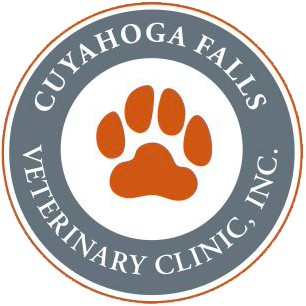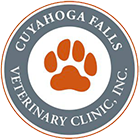|
Dr. Gates (Senior) and I have been working with students from a variety of stages in their education lately, from high schoolers in the School of Medical Professions program at Cuyahoga Valley Christian Academy and the Mentorship Program at Cuyahoga Falls High School… to college students accumulating observation hours for application to veterinary school… to veterinary students (most recently from Minnesota and Purdue) completing their externship requirements.
It is particularly fun for us to build the confidence among veterinary students close to graduation, and to take questions from pre-veterinary students who are eager to learn. One of the questions that we always cover at some point in our conversation with pre-veterinary students is, “What does it take to get into veterinary school?”
There are lots of hoops through which to jump when applying to veterinary school. For the purposes of our time here, I’ll share details for Ohio State’s program, as our local readers will have the best chance of admission at Ohio State. For our national and international readers, there may be subtle differences, but the bulk of the requirements will be awfully similar. Also, your best opportunity for admission will likely be within the state to which you/your family pays taxes. (States without veterinary colleges contract with states which do have colleges.)
For Ohio State’s College of Veterinary Medicine…
- A list of undergraduate prerequisites must be completed, including courses in Chemistry, Biology, Physics, Genetics, Math, English and Humanities. These prerequisites can be completed in three years by the most highly motivated students, and in four years by academically focused students.
- A standardized test, either the GRE or the MCAT, must be completed. There is no minimum score for GRE-takers. The minimum acceptable MCAT score is 24. There is no preferential treatment given to applicants taking the MCAT, so I recommend taking the GRE.
- A detailed application must be completed.
- The college has increased the number of reference letters from two to three in recent years. One of the letters must be from a veterinarian. This is an area, in my opinion, where the minimum should be ignored: work to obtain two or three reference letters from veterinarians. Doing so will also facilitate earning lots of volunteer/observation hours. By building a relationship with a veterinarian or two (or more) through shadowing and observing, an applicant can accumulate hundreds of hours of exposure to veterinary medicine and give the veterinarian a good reason to write a glowing letter of recommendation. I don’t have hard evidence that a recommendation from a large-animal veterinarian is given any more weight by the admissions committee, but it certainly can’t hurt, and a broad base of exposure to the profession can only be helpful.
After covering these items with the pre-veterinary student, most of which are met during the college years, we talk about the things that a high school student can do to prepare for veterinary college.
- Working hard in school is, far and away, the best preparation during the high school years. Taking fundamental courses such as Biology, Chemistry, Physics, English and History will provide a foundation that will serve the prospective college student very well.
- Shadowing and observation experience can begin during the high school years. I began my experience by cleaning cages in the kennels, and I’d venture to guess that most veterinarians had a similar start. It’s amazing what can be gained by performing menial tasks and soaking up what’s going on here and there in the clinic.
- Community service is well-received by veterinary admissions committee-members, and forming good service habits early on is highly advised.
Admission to veterinary school takes focus and commitment, as well as a good understanding the economics of a veterinary medical education and career, especially with annually increasing tuition and starting salaries that make it difficult to pay down significant debt. Veterinary medicine can be a rewarding career if one’s expectations are appropriately set. If veterinary school is appealing to you, don’t hesitate to talk with one of our doctors about how you can best position yourself for admission.



The Cuyahoga Falls Veterinary Clinic | Animal Wellness | Medical Services | Pet Services
[…] to talk about the ins and outs of veterinary medicine, what life is like for a veterinarian and how an interested student would prepare for veterinary college, I take them through a series of radiographs that high-light some interesting cases that are […]